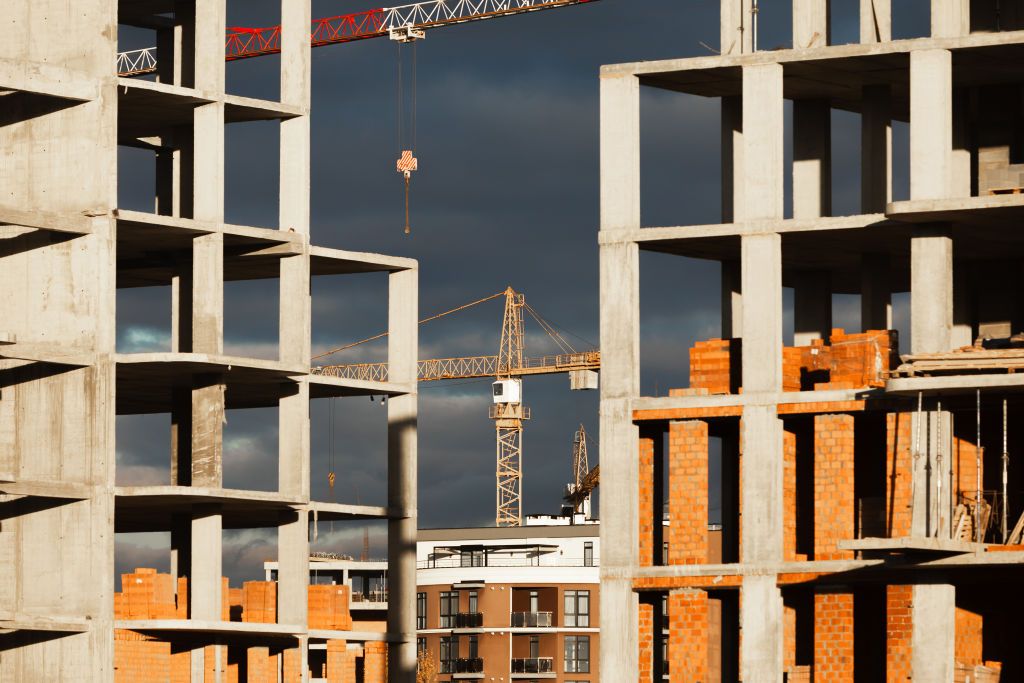Ukraine Business Roundup — Ukraine’s Economy in 2025

The following is the Jan. 7, 2025 edition of our Ukraine Business Roundup weekly newsletter. To get the biggest news in business and tech from Ukraine directly in your inbox, subscribe here.
It’s hard to fully predict what Ukraine’s economy will look like in 2025. It largely depends on whether a ceasefire deal is negotiated that brings the war to an end or at least a stop in the fighting.
An end to the war could usher in an era of investment and the much-awaited reconstruction of the country as the risks to investors drop and money pours in.
On the other hand, a ceasefire would likely mean a decrease in government spending and a significant drop in the fiscal stimula seen over the last three years of war, particularly the large salaries paid to soldiers.
“That could mean that for a certain time Ukraine runs into a crisis — we hope it wouldn’t be a lengthy crisis and hopefully investments would dominate,” Oleksandr Parashchiy of Concorde Capital said at an online event organized by the Kyiv-based Center for Economic Strategy (CES) in December.
Financial markets are betting on an end to the war sometime this year, with prices for Ukrainian assets increasing and sovereign Eurobond prices increasing by 7-15% since late last year around the time of Donald Trump’s reelection, Olena Bilan of investment firm Dragon Capital said at the event.

If the war doesn’t end in 2025 — which all the Ukrainian analysts participating in the CES event consider unlikely — the forecasts are still more or less positive.
Among analysts, Ukraine’s economy is expected to grow by around 3%. The National Bank of Ukraine puts real GDP growth at 4.3% while the Economy Ministry predicts it will be around 2.7%. Nominal GDP could reach $198 billion, non-governmental analysts predict.
Dragon Capital estimates the economy will grow by 3% in a scenario in which more funds are directed to the country’s defense sector — an area key to growth, according to the firm.
If a ceasefire deal does transpire, the economy could grow 5-7% if consumption improves, there is a partial return of refugees from abroad, and reconstruction starts, the firm believes.

Analysts expect a drop in inflation from around 10% in 2024 to around 7% this year. The Economy Ministry puts inflation higher, at 9.5%, while the Central Bank estimates it at 6.9% and the International Monetary Fund at 7.5%.
Dmytro Krukovets of the Kyiv School of Economics (KSE) said that the factors that contributed to higher inflation in 2024 — higher salaries brought on by high competition in a tight labor market and higher energy prices — “are running out.”
Ukraine’s budget deficit is expected to be around $38 billion this year, compared to $44 billion last year, an overall positive sign.
The country’s external financing needs will mainly be met with the G7’s $50 billion loan to Kyiv that will be paid back with the profits from Russian assets, as well as around $13 billion from the EU’s Ukraine Facility.
Once the funds from the G7 loan come in, which should be pretty quickly once the details are finalized, Ukraine will be able to use the money to cover budget expenditures and finance its war effort.

The end of an era
"When (Vladimir) Putin was handed power in Russia over 25 years ago, the annual gas pumping through Ukraine to Europe stood at over 130 billion cubic meters. Today, the transit of Russian gas is 0. This is one of Moscow's biggest defeats.”
That’s what President Volodymyr Zelensky had to say following the end of decades of Russian gas transit through Ukraine to Europe.
A deal between Ukraine and Russia’s Gazprom expired on Dec. 31 after Kyiv refused to renew it, not wanting to finance the Kremlin’s war machine.
"Turning energy into a weapon and cynical energy blackmail of partners is what deprived Russia of its most attractive and geographically accessible market," Zelensky said.
But whether Russia will really feel the pain from the end of transit through Ukraine — which had already decreased from 155 billion cubic meters annually before the invasion to 30 billion last year — remains to be seen. The Kremlin is now selling record amounts of LNG to Europe.
The end of the deal has also infuriated Ukraine’s Russia-friendly neighbor Slovakia who still relies heavily on Russian gas. Its leader Robert Fico threatened to cut off electricity exports to Kyiv in response, worsening already very sour relations.

Poland Protests
After blockading cargo traffic at the Polish-Ukrainian border for months between late 2023 and early 2024, Polish farmers have again taken to the streets of Warsaw to protest agricultural exports from Ukraine and EU policies they say are threatening their livelihoods.
This most recent rally on Jan. 3, which coincides with the inauguration of the Polish presidency of the Council of the EU, is held under the slogan "Five times STOP."
The five things they’re saying STOP to — Ukrainian imports, the European bloc's trade deal with the Mercosur group of South American countries, the Green Deal, the EU policies on forests and hunting, and the perceived "extinction of the Polish economy."
It’s unclear yet if the protests will balloon into a similar showdown at the border during the last blockade.
If it does, it could spell trouble for Ukraine’s exports and EU relations amid an uncertain future relationship with the incoming Trump administration.

Startups cut demining time by centuries
When a sapper with the call sign "Boroda" asked his friends, the founders of the Rovertech company, to create something for demining, and provided them with his own sketch, they seized on the idea.
"He made us make something so that he would not risk his life so much. We tortured each other until we finally did it," Borys Drozhak, the co-founder of Rovertech, told the Kyiv Independent.
The company designed the "Zmiy" (Snake) remote demining vehicle. It is just one example of Ukrainian startup industry’s initiatives to foster the country’s mine-clearing efforts.
Russia’s full-scale invasion turned Ukraine into the most mined country in the world, putting at risk the lives of Ukrainian people for generations to come. According to a Globsec report, it might take over 700 years to clear Ukraine using existing resources. But the country’s plans are far more ambitious.
Read the full story, sponsored by the United Nations Development Programme (UNDP) in Ukraine, here.
What else is happening
Ukraine receives 1st shipment of US LNG
Ukraine's largest private energy company, DTEK, signed a deal on LNG supplies with the U.S. firm Venture Global in June, marking the first time Ukraine purchased LNG from the U.S. DTEK accepted the first shipment at the end of last year, which contained approximately 100 million cubic meters worth of natural gas. The LNG will be re-gasified and exchanged throughout EU and Ukrainian gas networks.
Ukraine's leading phone operator Kyivstar announces new agreement with Starlink
Ukraine's largest telecommunications operator, Kyivstar, signed an agreement to become one of the first countries with access to Starlink's direct-to-cell service, the Ukrainian telecom operator announced on Dec. 30. The new service will help stabilize the country's national communications infrastructure and is expected to launch messaging services toward the end of 2025, with voice and data transmission to follow, according to an announcement from Kyivstar.
Ukraine hits $24.5 billion in agro-exports in 2024, nearing pre-war levels, Agriculture Ministry reports
The exports accounted for 59% of the country’s total exports, the Agriculture Ministry announced on Jan. 3. This marks a significant recovery, nearing pre-war levels and achieving the second-highest record after 2021’s $27.7 billion. Sunflower oil led the exports at 21%, with nearly 6 million tons worth $5.1 billion. Corn matched this share, with 29.6 million tons exported for $5 billion. Wheat followed at 15%, totaling 20.6 million tons worth $3.7 billion.
Ukrainians paid $24 billion in taxes in 2024, Finance Ministry reports
Corporate income tax amounted to Hr 270.8 billion ($6.5 billion), value added tax came to Hr 267.8 billion ($6.4 billion), personal income tax and military tax – a sum levied from citizens to support the war effort – was Hr 233.6 billion ($5.6 billion), excise tax was Hr 133.5 billion ($3.2 billion), and Hr 51.8 billion ($1.2 billion) was transferred to the state budget from rent, the Finance Ministry said.
New heads of tax service, financial monitoring service
Ruslan Kravchenko, former governor of Kyiv Oblast, was appointed as the new head of the State Tax Service, while Filip Pronin, ex-governor of Poltava Oblast, will now head the State Financial Monitoring Service. Both were appointed without a competitive selection process — allowed under martial law — and are said to have close ties to Presidential Office Head Andriy Yermak, according to opposition MP Yaroslav Zhelezniak.












